You are viewing the Cultures of Knowledge Blog archive for the ‘Projects and Centres’ Category:
James Brown
December 14, 2012
Podcasts, Projects and Centres, Publications, Websites and Databases
Tags: Archives, Centre for Editing Lives and Letters, Diplomatic History, England, Materiality, Networks, Seventeenth Century, Sixteenth Century, Union Catalogue
 Those seeking to balance the port and mince pies this holiday season with some state-of-the-art reflections on early modern epistolarity are in luck: the latest issue of Lives & Letters – the free online journal of UCL’s Centre for Editing Lives and Letters – is devoted to New Directions in the Study of Early Modern Correspondence.
Those seeking to balance the port and mince pies this holiday season with some state-of-the-art reflections on early modern epistolarity are in luck: the latest issue of Lives & Letters – the free online journal of UCL’s Centre for Editing Lives and Letters – is devoted to New Directions in the Study of Early Modern Correspondence.
Guest-edited by James Daybell and Andrew Gordon, and developing out of a conference held at Plymouth University in 2011, the issue features an introduction to the latest developments in the field (in which EMLO gets a name-check); eight case studies of particular correspondents and correspondence networks; and a spectacularly useful select bibliography on the manuscript letter in early modern England. All articles are free for download from the journal website. James also contributed to our 2011 seminar series (here’s the podcast), while his latest book on the material letter has just been reviewed by the IHR.
James Brown
November 30, 2012
Calls for Papers, Conferences and Workshops, Events, Projects and Centres
Tags: Book History, Diplomatic History, Gender, Global, History of Scholarship, History of Science, Networks, Religion, Women
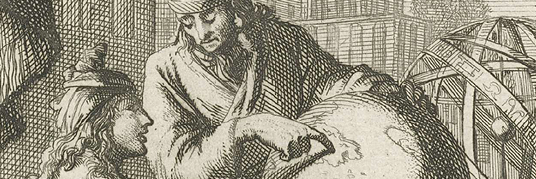 The Centre for Seventeenth-Century Studies at Durham University is seeking papers for a conference on Intellectual Networks in the Long Seventeenth Century (30 June–2 July 2013). The event – which will feature a keynote lecture from our own Howard Hotson – will ‘explore the emergence and consolidation of systems of intellectual and cultural exchange during the long seventeenth century, while assessing their lasting influence on the history of scholarship, literature, diplomacy, science, and religious communities’. Proposals are encouraged on (inter alia) erudite correspondence; academic networks; diplomacy; literary circles; intellectual exchange within religious communities; the book trade; women and intellectual exchange; and popular cultural exchange.
The Centre for Seventeenth-Century Studies at Durham University is seeking papers for a conference on Intellectual Networks in the Long Seventeenth Century (30 June–2 July 2013). The event – which will feature a keynote lecture from our own Howard Hotson – will ‘explore the emergence and consolidation of systems of intellectual and cultural exchange during the long seventeenth century, while assessing their lasting influence on the history of scholarship, literature, diplomacy, science, and religious communities’. Proposals are encouraged on (inter alia) erudite correspondence; academic networks; diplomacy; literary circles; intellectual exchange within religious communities; the book trade; women and intellectual exchange; and popular cultural exchange.
The deadline for proposals for 20-minute papers and full panels is 15 January 2013. For further details and submission instructions, head along to the conference webpage or download the flyer (pdf).
James Brown
November 26, 2012
Conferences and Workshops, Events, Project Updates, Projects and Centres, Videos, Websites and Databases
Tags: AHRC, Databases, Digitization, Union Catalogue, Visualization
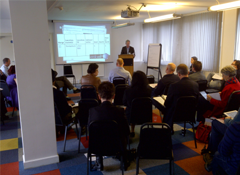
Howard mid-‘yack’
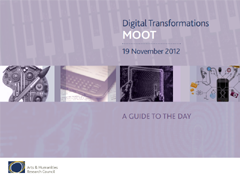
Visit event website
An outing to London last Monday when we presented Early Modern Letters Online at the Digital Transformations Moot, curated and funded by the AHRC. The day long event brought together digital humanists with thinkers and practitioners from other disciplines and sectors ‘to explore the possibilities of the Digital Transformations theme for new and exciting ways of working: to hack, to make, to break’.
The Moot did a great job of showcasing the very wide range of work (and attendant debates) currently being done at the intersection of the humanities and the technical, and in particular in highlighting and fostering new kinds of connections between digital technologies, arts and the humanities, and the creative and cultural industries (the latter being much more strongly represented than is usual at DH gatherings). It was also really interesting from the perspective of event design. Decked out in bracing, challenging terminology – debates were ‘moots’; delegates were ‘mootlings’; papers became ‘yacks’ – the day spread keynote lectures, panel discussions, software demos, and PechaKucha-style talks across multiple tracks and spaces in a kind of freeform digital smörgåsbord that rewarded curiosity and encouraged the creation of individual narratives and serendipitous connections between the sampled components. Further details on the Moot webpage, while the Twitter hashtag was #digitrans; videos of the various live streams will be posted the the webpage shortly.
The News Networks in Early Modern Europe research group is seeking papers for its terrific-sounding concluding conference on News and the Shape of Europe, 1500-1750 (Queen Mary, University of London, 26-28 July 2013). Emphasizing the transnational attributes of news networks and their superimposition on pre-existing systems of exchange (physical/logistical, commercial, religious, diplomatic, military, and scholarly), the event 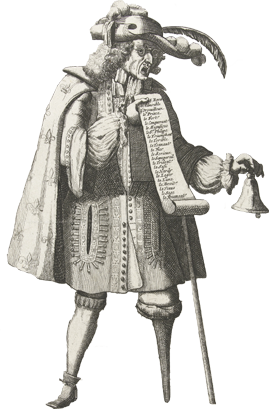 is after contributions on the following themes: ‘International news; networks of news; news in transmission; translating news; war reporting; news from beyond Europe; forms of news; orality/manuscript/print; the uses and afterlives of news; old (and recycled) news; images of news; news and institutions; news and the state; news and the city; news readers’.
is after contributions on the following themes: ‘International news; networks of news; news in transmission; translating news; war reporting; news from beyond Europe; forms of news; orality/manuscript/print; the uses and afterlives of news; old (and recycled) news; images of news; news and institutions; news and the state; news and the city; news readers’.
The deadline for 250-word proposals for communications of twenty minutes is 28 February 2013. For further information, submission instructions, and contact details, head along to the News Networks in Early Modern Europe Blog.
Further to the CFP, you can now book for the one-day conference The Permissive Archive (UCL, Friday 9 November 2012). Celebrating the tenth anniversary of the Centre for Editing Lives and Letters, the fascinating-sounding event will ‘present a wide range of work which opens up archives – not only by bringing to light objects and texts that have lain hidden, but by demystifying and demonstrating the skills needed to make new histories’. Rescuing repositories from their persistent but wildly misleading association with neutrality, inertia, and ‘settled dust’, archival research will be ‘championed as engaged and engaging: a rigorous but permissive field’. Flying the flag for Cultures of Knowledge will be our former 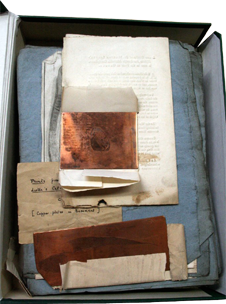 doctoral student Kelsey Jackson Williams (who will present on John Aubrey’s donations to the Ashmolean Museum) and Anna Marie Roos (who, on the same panel, will offer a case study of the complex archival trajectory of four boxes of Martin Lister ephemera [pictured] serendipitously discovered among the holdings of the Sackler Library earlier this year). Other epistolary papers abound.
doctoral student Kelsey Jackson Williams (who will present on John Aubrey’s donations to the Ashmolean Museum) and Anna Marie Roos (who, on the same panel, will offer a case study of the complex archival trajectory of four boxes of Martin Lister ephemera [pictured] serendipitously discovered among the holdings of the Sackler Library earlier this year). Other epistolary papers abound.
The deadline for registrations is 1 November 2012. For further details, the schedule, and to book online, head along to the conference website.
James Brown
August 29, 2012
Projects and Centres, Websites and Databases
Tags: CKCC, Databases, Digitization, Dutch Republic, History of Scholarship, History of Science, Networks, Seventeenth Century, Visualization
Our good friends and colleagues from Circulation of Knowledge and Learned Practices in the Seventeenth-Century Dutch Republic (CKCC) at Huygens ING in The Hague have a shiny new website. Most excitingly, the revamped site contains a link and extensive supporting documentation for a closed beta (or prototype) of the much-anticipated Epistolarium, a virtual research environment in which users can explore and analyze metadata and full texts of c.20,000 scholarly Dutch letters from the period 1594-1707; see the video above for a rapid-fire introduction. As a long-standing collaborator of CKCC, we’ve been fortunate enough to get a sneak preview of this exciting new resource and will be providing feedback in advance of a full public release (and a resulting edited collection) in 2013. Congratulations to Charles, Guido, Walter, Wijnand, and the rest of the CKCC team!
 Those seeking to balance the port and mince pies this holiday season with some state-of-the-art reflections on early modern epistolarity are in luck: the latest issue of Lives & Letters – the free online journal of UCL’s Centre for Editing Lives and Letters – is devoted to New Directions in the Study of Early Modern Correspondence.
Those seeking to balance the port and mince pies this holiday season with some state-of-the-art reflections on early modern epistolarity are in luck: the latest issue of Lives & Letters – the free online journal of UCL’s Centre for Editing Lives and Letters – is devoted to New Directions in the Study of Early Modern Correspondence.
 The
The 

 is after contributions on the following themes: ‘International news; networks of news; news in transmission; translating news; war reporting; news from beyond Europe; forms of news; orality/manuscript/print; the uses and afterlives of news; old (and recycled) news; images of news; news and institutions; news and the state; news and the city; news readers’.
is after contributions on the following themes: ‘International news; networks of news; news in transmission; translating news; war reporting; news from beyond Europe; forms of news; orality/manuscript/print; the uses and afterlives of news; old (and recycled) news; images of news; news and institutions; news and the state; news and the city; news readers’. doctoral student
doctoral student 
 Join
Join 